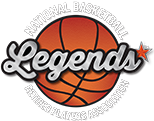Trailblazers
By Peter Vecsey
Since this is Black History Month, what better time to offer some prehistoric history?
The Pride and Prejudice (more of the latter, unfortunately) of Chuck Cooper, Nathanial ‘Sweetwater’ Clifton, Earl Lloyd and Hank DeZonie have (finally) been revisited and revered.
Cooper (2019) and Clifton (2014, players) along with Lloyd (2003, contributor) have each been summoned to Springfield.
While these fine gentlemen were indeed the league’s Black forefathers, they were not the first players of color in professional basketball.
Allow me to introduce the forefathers of the forefathers (the eightfathers?).
If the names William ‘Pop’ Gates and William ‘Dolly’ King do not resonate with the readership, well, that’s why I’m here.
In the primordial period before the NBA, there was the NBL (National Basketball League), formed in 1937, and the BAA (Basketball Association of America), which began in ‘46.
The latter consumed what was left of the former, eventually morphing into the NBA after the 1948-49 season.
Gates, a New York City (Benjamin Franklin) star, made his pro reputation for the badass barnstorming New York Renaissance...Rens for you harried headline writers out there.
All the Rens accomplished was a pre-UCLA 88-game winning streak, against all teams, black or white, in 1932-33.
Though a bit underaged to participate in that pillaging, Gates’ exploits were nonetheless so explosive, both he (1989) and the Rens (1963) were also given Hall passes.
Do yourself and Kareem-Abdul Jabbar a favor. Get a hold of his ‘On the Shoulders of Giants’ tome to learn a whole lot more about the Renaissance and their impact on, and contribution to, the game.
After the Rens, Gates, according to his Naismith bio, ‘played for a handful of teams and helped to integrate the National Basketball League in 1946 as a member of the Buffalo Bisons/Tri-Cities Blackhawks’.
Coincidentally (or not), the NBA chose the 1946 birth of the BAA for the start of its version of pro basketball, hence a 75th anniversary commemoration planned for sometime soon, I gather. My ballot for the Top 75 is in the mail (or not).
Gates’ two NBL seasons saw him average 7.6 and 11.2 points per game, but his contribution, it says here, filled up a more important stat sheet.
Gates passed away in December of 1999, at the age of 82.
King was also a NYC (Alexander Hamilton) high-school stalwart. A three-sport (basketball, baseball, football) threat at Long Island U.—where Naismith Hall of Famer Clair Bee coached basketball and football—Al Gore’s internet swears King played full games of both. The Very Same Day!
The late ‘30’s and early ‘40’s saw LIU as the gold standard of college cage, well before the scandal (but we’re leaving that alone here).
Back to King, who left LIU hoops (where he teamed briefly with a pretty fair baseball player, Larry Doby, the American League's first black player in 1948), making his mark with the Rens before another Hall of Fame coach, Les Harrison, signed him for the NBL’s Rochester Royals in 1946.
His numbers (four ppg in 41 games) belied his bigger-picture benefaction of helping to integrate (there’s that word again) the game.
King died in January, 1969, age 52.
If you haven’t figured out today’s lesson plan as of yet, ponder this...
With all due respect to the Fearsome Foursome firm of Cooper, Clifton, Lloyd and DeZonie, shouldn’t Gates and King have been ordained as the professional’s first African-American players?
I mean, they participated in a pro league during the same season (1946) the NBA has recognized as the beginning of organized, play-for-pay basketball, yet there’s nothing in the way of remembrance or remuneration-- statistical inclusion, pension, whatever.
The overdue acknowledgment doesn’t have to come during Black History Month. Any month is fine by me.
Afterthoughts:
Dolly King used to referee in the CHSAA. Once I distinctly remember, he officiated a JV game of mine at Archbishop Molloy.
Pop Gates and I spoke often during my six years coaching at Rucker Park. Told me many stories about the Rens, and took me to meet their founder, Bob Douglas, at his Harlem apartment in 1972, the year he was inducted into the Hall of Fame. Douglas was born in Saint Kitts (Gates in Decatur, GA), but moved to New York at a young age. Nicknamed the "Father of black Professional Basketball", he owned and coached the Rens from 1922 to 1949, guiding them to a 2,318-381 record.
"What was Harlem like when you were growing up?" I asked Douglas, who died in 1979.
"There was no Harlem when I was growing up."


